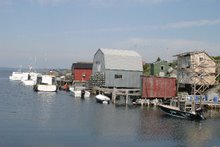High levels fatal to fish, serious danger to human health.
South Korea’s four major rivers were found to have been seriously contaminated with copper, a survey showed.
According to the report by the Ministry of Environment, the nation’s four major rivers contained an average of 12 parts per billion (ppb) of copper, more than two times higher than the level of 5 ppb deemed to pose a threat to living creatures in fresh water.
In Nakdong River, the copper levels reached 28.7 ppb, the highest among those surveyed, followed by Yeongsan River with 10.3 ppb and Han River with 5.0 ppb.
The ministry said that salmonoid fish are susceptible to the 5 ppb level of copper and a level between 5-15 ppb of copper represents a fatal dose to half of young fish, algae, and daphnia species.
Considering the hazardous impact of copper in fresh water, the Environmental Protection Agency of the U.S. lowered permissible levels there to 1.3 ppb.
"Copper contamination in the nation’s major water sources has reached dangerous levels in terms of health for aquatic life," said Hong Jun-seok, a ministry official. The ministry plans to set forth guidelines for limiting copper contents in rivers and other areas.
Meanwhile, the World Health Organization announced it is preparing a new set of guidelines for water quality standards, which will include information on the hazardous impact of copper on human bodies. The WHO said that copper exceeding a certain level can cause not only chronic liver and kidney problems in humans, but is also linked to the onset of Alzheimer’s disease.
According to the report by the Ministry of Environment, the nation’s four major rivers contained an average of 12 parts per billion (ppb) of copper, more than two times higher than the level of 5 ppb deemed to pose a threat to living creatures in fresh water.
In Nakdong River, the copper levels reached 28.7 ppb, the highest among those surveyed, followed by Yeongsan River with 10.3 ppb and Han River with 5.0 ppb.
The ministry said that salmonoid fish are susceptible to the 5 ppb level of copper and a level between 5-15 ppb of copper represents a fatal dose to half of young fish, algae, and daphnia species.
Considering the hazardous impact of copper in fresh water, the Environmental Protection Agency of the U.S. lowered permissible levels there to 1.3 ppb.
"Copper contamination in the nation’s major water sources has reached dangerous levels in terms of health for aquatic life," said Hong Jun-seok, a ministry official. The ministry plans to set forth guidelines for limiting copper contents in rivers and other areas.
Meanwhile, the World Health Organization announced it is preparing a new set of guidelines for water quality standards, which will include information on the hazardous impact of copper on human bodies. The WHO said that copper exceeding a certain level can cause not only chronic liver and kidney problems in humans, but is also linked to the onset of Alzheimer’s disease.


1 comment:
Wow, if that was not a serious problem, then I wonder what the Korean Ministry of Environment would call serious. Look at that slim, I would be amazing if anything could survive in that, or more so what mutations have been a result from this copper. Really, they should be doing a lot more then limiting copper contents in rivers and other areas, they should be trying to get rid of it all together, especially because it is becoming a liability to the Korean people’s health. If I lived there and knew the copper levels were that high in the reservoir waters, I would not be consuming it!
Post a Comment